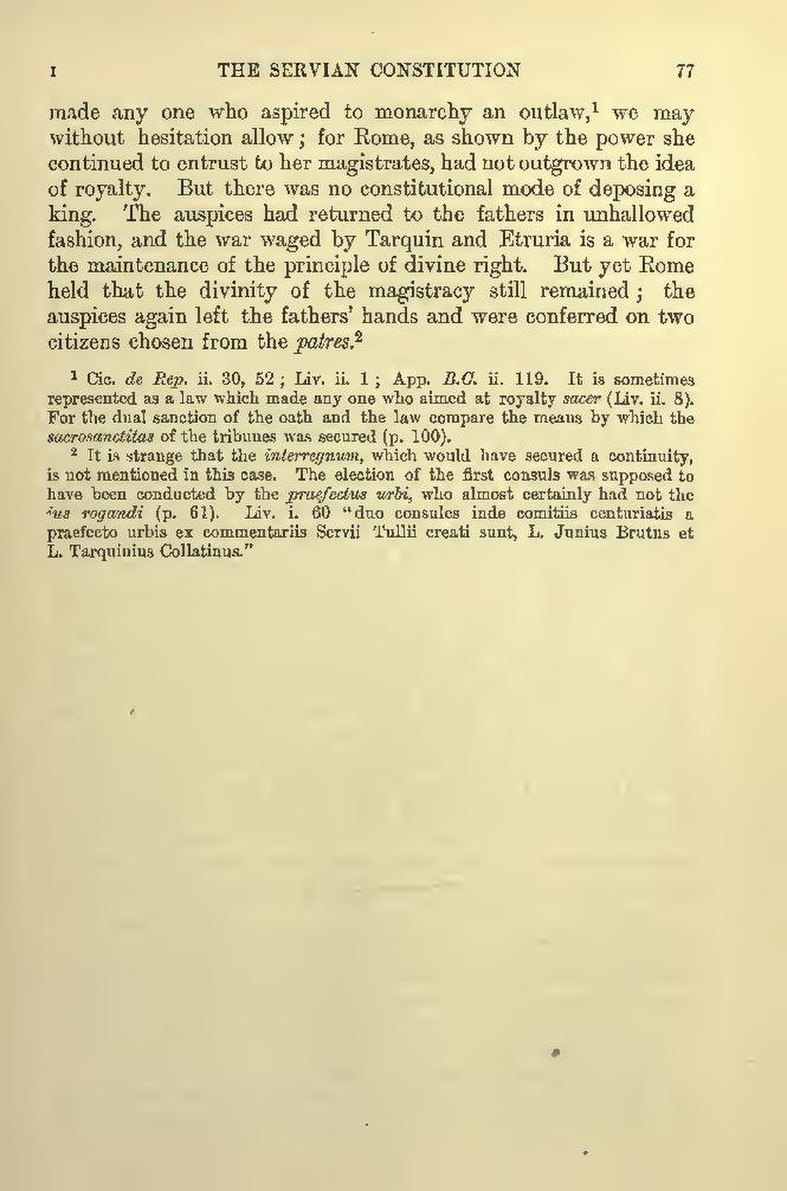This page needs to be proofread.
made any one who aspired to monarchy an outlaw,[1] we may without hesitation allow; for Rome, as shown by the power she continued to entrust to her magistrates, had not outgrown the idea of royalty. But there was no constitutional mode of deposing a king. The auspices had returned to the fathers in unhallowed fashion, and the war waged by Tarquin and Etruria is a war for the maintenance of the principle of divine right. But yet Rome held that the divinity of the magistracy still remained; the auspices again left the fathers' hands and were conferred on two citizens chosen from the patres.[2]
- ↑ Cic. de Rep. ii. 30, 52; Liv. ii. 1; App. B.C. ii. 119. It is sometimes represented as a law which made any one who aimed at royalty sacer (Liv. ii. 8). For the dual sanction of the oath and the law compare the means by which the sacrosanctitas of the tribunes was secured (p. 100).
- ↑ It is strange that the interregnum, which would have secured a continuity, is not mentioned in this case. The election of the first consuls was supposed to have been conducted by the praefectus urbi, who almost certainly had not the jus rogandi (p. 61). Liv. i. 60 "duo consules inde comitiis centuriatis a praefecto urbis ex commentariis Servii Tullii creati sunt, L. Junius Brutus et L. Tarquinius Collatinus."
